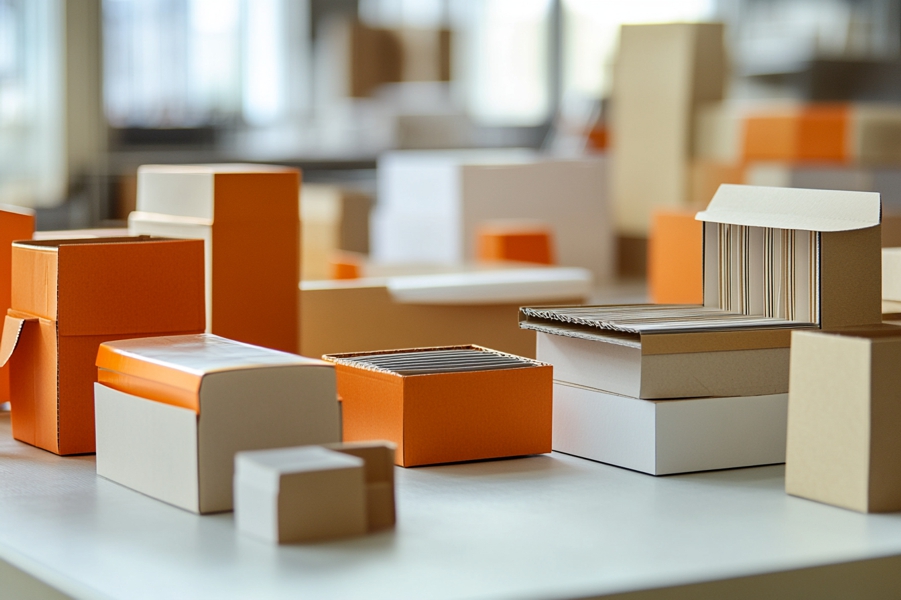Understanding Multi-Layered Cartons in Packaging Solutions

Multi-layered cartons are an advanced packaging solution that offers enhanced protection and preservation for a wide range of products. Typically used in the food, beverage, and pharmaceutical industries, these cartons consist of multiple layers of different materials, each designed to serve a specific purpose. The combination of layers provides a robust barrier against environmental factors such as light, oxygen, and moisture, ensuring that the packaged product maintains its quality, freshness, and safety throughout its shelf life.
Structure of Multi-Layered Cartons
A typical multi-layered carton is composed of several materials, each with a unique function. The outermost layer is often made of paperboard or cardboard, providing strength and structure to the packaging. The inner layers, which may include materials like aluminium foil or polyethylene, offer barrier properties, such as preventing moisture and oxygen from penetrating the packaging. These inner layers play a critical role in extending the shelf life of perishable products, particularly those sensitive to environmental exposure, such as dairy, juices, and pharmaceuticals.
The design of multi-layered cartons allows manufacturers to tailor the packaging to specific product needs. For example, some multi-layered cartons used for liquid products, like milk and juice, incorporate layers of plastic and aluminium to create a liquid-tight, light-resistant package. Other cartons may focus on optimising strength and rigidity for dry goods, reducing the risk of crushing during transportation and storage.
Applications of Multi-Layered Cartons
Multi-layered cartons are widely used in industries where product preservation is crucial. The food and beverage sector benefits significantly from this packaging solution. For instance, UHT (ultra-high temperature) processed milk, juices, soups, and sauces are commonly packed in multi-layered cartons to extend shelf life without the need for refrigeration. The packaging ensures that the product remains free from contamination while maintaining its flavour, nutritional value, and appearance.
In the pharmaceutical industry, multi-layered cartons are used for products such as liquid medications and vaccines, where maintaining sterility and controlling environmental exposure are of paramount importance. These cartons provide the necessary barrier to protect sensitive compounds from light, heat, and humidity, ensuring the product’s efficacy until it reaches the consumer.
Additionally, multi-layered cartons are also popular in packaging personal care and household products, providing a reliable and cost-effective solution for protecting various formulations from external conditions that could compromise their stability or quality.
Advantages of Multi-Layered Cartons
The primary advantage of multi-layered cartons is their ability to protect products from environmental factors that can affect quality and safety. The multi-layered construction provides superior barrier properties, keeping out light, oxygen, and moisture, which can lead to spoilage or degradation of the product. This makes them ideal for products that require extended shelf life or are sensitive to environmental changes.
Another significant advantage is their contribution to sustainability. Many multi-layered cartons are designed to use fewer raw materials than traditional packaging alternatives, reducing the overall environmental impact. Some multi-layered cartons are also fully recyclable, allowing manufacturers to reduce waste while meeting consumer demand for eco-friendly packaging options.
Multi-layered cartons are lightweight and durable, which reduces transportation costs and lowers the carbon footprint associated with shipping. Furthermore, they can be printed with high-quality graphics, enhancing the visual appeal of the packaging while providing necessary information to consumers.
Environmental Considerations and Challenges
While multi-layered cartons offer numerous benefits, they also present challenges in terms of recycling. The combination of materials, such as paperboard, plastic, and aluminium, can make it more difficult for recycling facilities to separate and process the individual layers. However, advances in packaging technology are addressing this issue. Manufacturers are developing more recyclable and biodegradable materials that can offer the same protection as traditional multi-layered cartons but with a reduced environmental impact.
Many companies are also working towards improving the recyclability of multi-layered cartons by creating mono-material versions that retain the barrier properties but simplify the recycling process. As consumer demand for sustainable packaging grows, it’s likely that innovations in this area will continue to evolve.
Future Trends in Multi-Layered Cartons
The future of multi-layered cartons is likely to be shaped by sustainability and innovation. As environmental regulations become stricter and consumers demand more eco-friendly packaging options, companies will continue to invest in research and development to create recyclable, biodegradable, and compostable multi-layered cartons that meet these demands without compromising product protection.
Another trend is the integration of smart packaging technologies into multi-layered cartons. These innovations could include indicators that show the freshness of the product, temperature tracking, or QR codes for enhanced consumer engagement, providing transparency and traceability for products.
As the packaging industry evolves, multi-layered cartons will remain a key solution for ensuring product safety, longevity, and brand appeal.
Summary
Multi-layered cartons provide an effective and versatile solution for protecting sensitive products from environmental factors, enhancing product shelf life, and meeting consumer expectations for sustainability. Their ability to combine protection with flexibility across various industries makes them a critical part of modern packaging solutions.
For businesses seeking to optimise their packaging processes, Jacob White Packaging offers expert consultation and tailored packaging solutions. Contact us today to learn more about how our carton packaging technology can benefit your operations.

